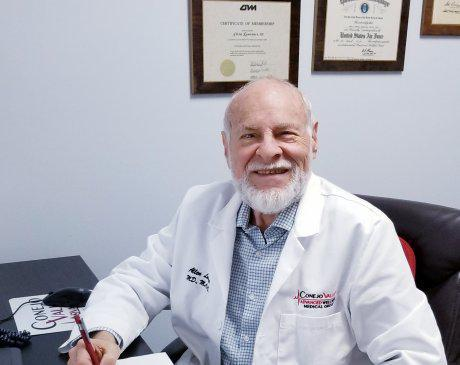- 21103 Vanowen St Woodland Hills, CA 91303 | Call us today!
- 310-879-9266
What Can Hormone Replacement Therapy Do for Me as a Woman?

Hormone Replacement Therapy (HRT) is a medical treatment that involves supplementing or replacing hormones that your body may not be producing adequately. For women, HRT is regularly used to address signs and symptoms and potential health problems associated with hormonal changes that occur just before, during, and after the onset of menopause.
Here are some potential benefits of Hormone Replacement Therapy can have for me as a women:
Rebalancing Hormones
As menopause approaches, women often experience a decline in hormone production, especially estrogen and progesterone. This hormonal shift can lead to various physical and psychological changes. HRT steps in to restore the hormonal balance that has been disrupted.
Relief from Menopausal Symptoms
Menopause can bring about a host of uncomfortable symptoms, including hot flashes, night sweats, mood swings, and sleep disturbances. HRT can provide relief by replenishing the lost hormones, particularly estrogen and progesterone.
Improved Bone Health
Estrogen plays a crucial role in maintaining bone density. With decreasing estrogen levels during menopause, the risk of osteoporosis, characterized by weakened and brittle bones, increases. HRT can slow down bone loss and mitigate the risk of osteoporosis and related complications.
Enhanced Cardiovascular Health
Studies suggest that initiating HRT early, before complete hormone loss, may have a protective effect on the cardiovascular system, reducing the risk of heart disease. Estrogen’s impact on improving blood vessel function is believed to contribute to this positive effect, although there is ongoing debate on this topic.
Better Vaginal Health
HRT has been proven to alleviate vaginal dryness, discomfort during intercourse, and urinary symptoms by restoring moisture and elasticity to vaginal tissues, reversing the negative effects of menopause.
Cognitive Function Improvement
Recent research indicates that HRT can positively affect cognitive abilities and reduce the risk of cognitive decline often observed in postmenopausal women.
Mood Enhancement
Estrogen appears to have a positive impact on mood, potentially preventing anxiety, depression, and mood swings associated with menopause.
Enhanced Quality of Life
Many women who opt for HRT report a significant improvement in their overall quality of life. This is often attributed to the reduction in invasive menopausal symptoms, resulting in improved physical, mental, and emotional well-being.
It’s important to note that while HRT can offer benefits, it can also come with some potential risks and considerations. This can include an increased risk of certain health conditions, such as blood clots, stroke, breast cancer, and cardiovascular events. Any decision I make to use HRT should be based on my careful recognition and evaluation of my past medical history, my existing risk factors, and my overall health.

Article by Dr. Allen Lawrence, M.D.
If you have questions call me at 310-879-9266
or write me at info@AdvancedWellnessMedical.com




